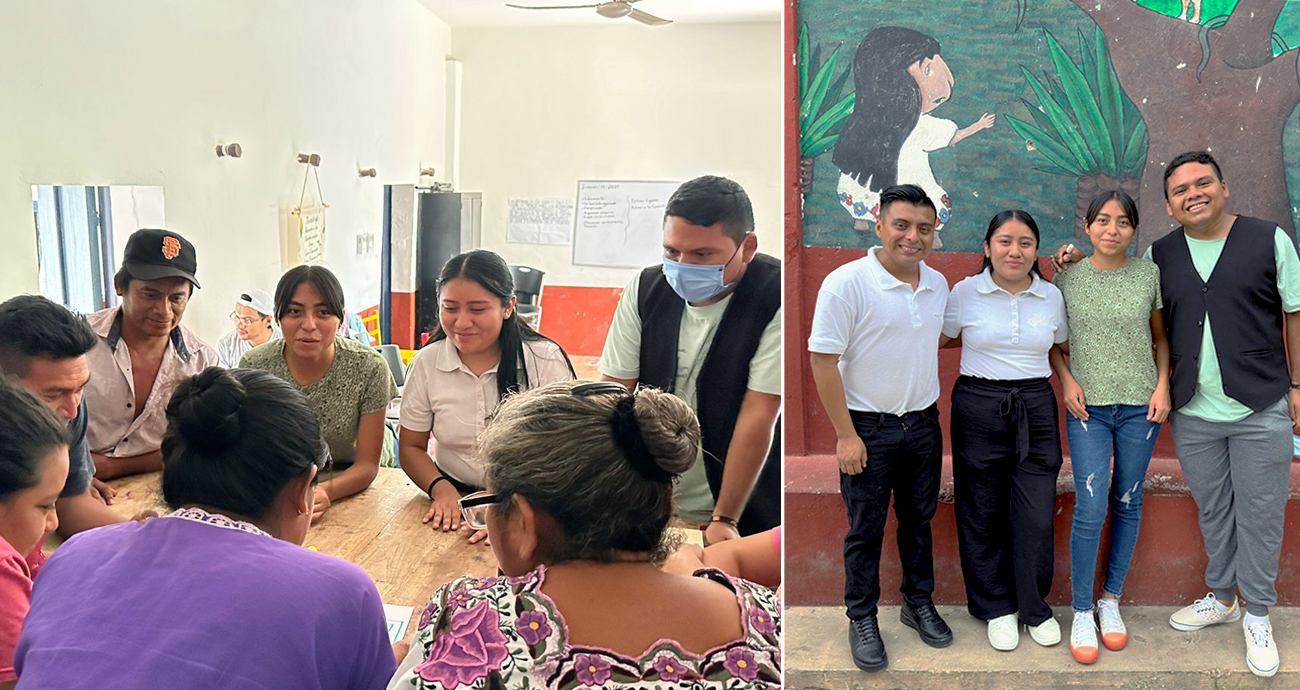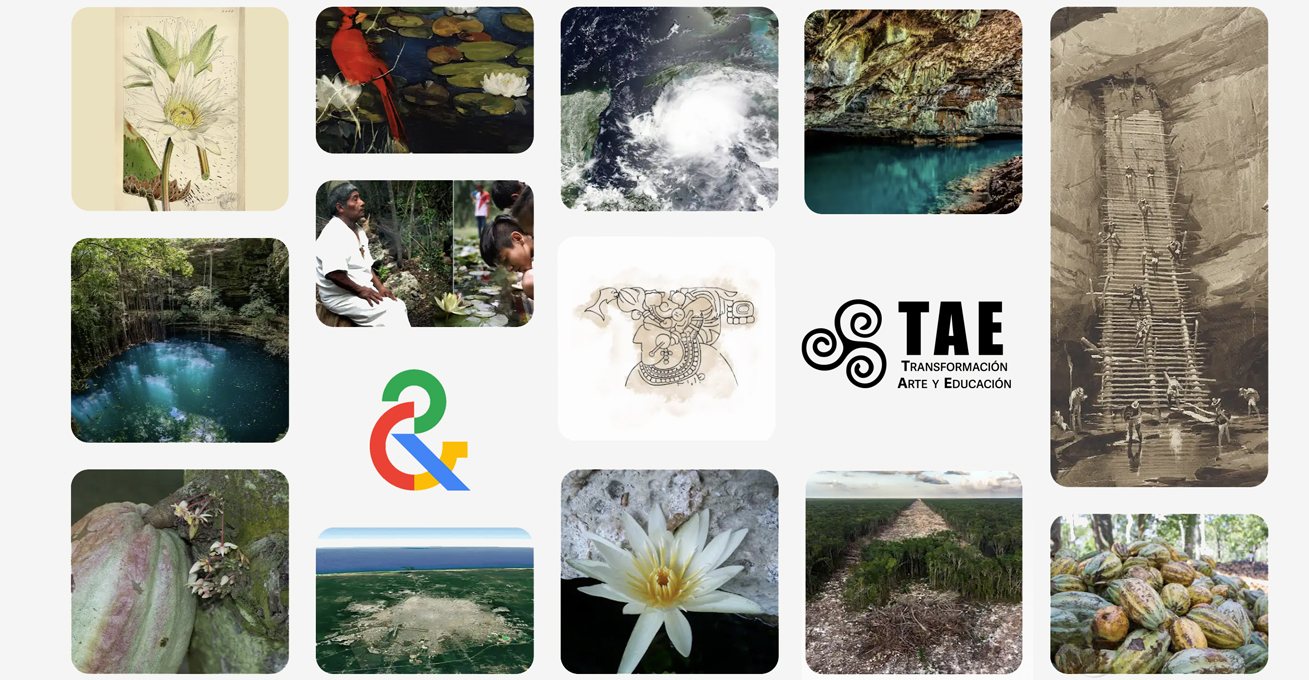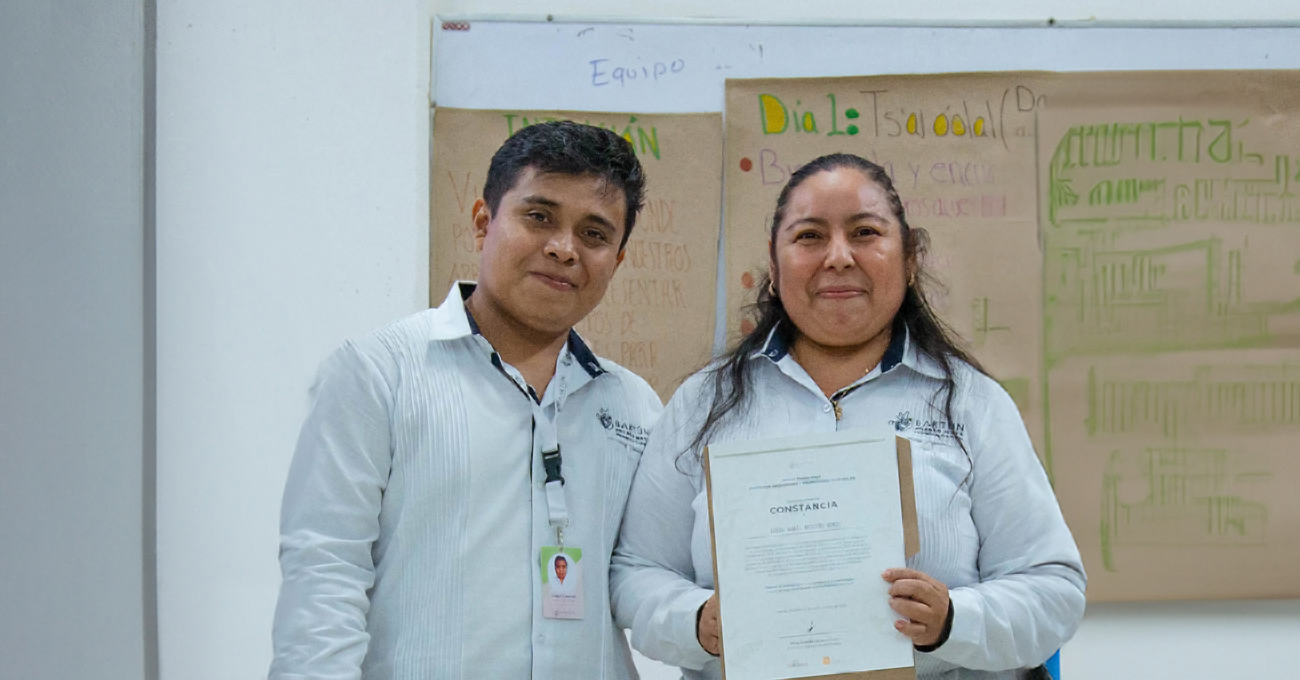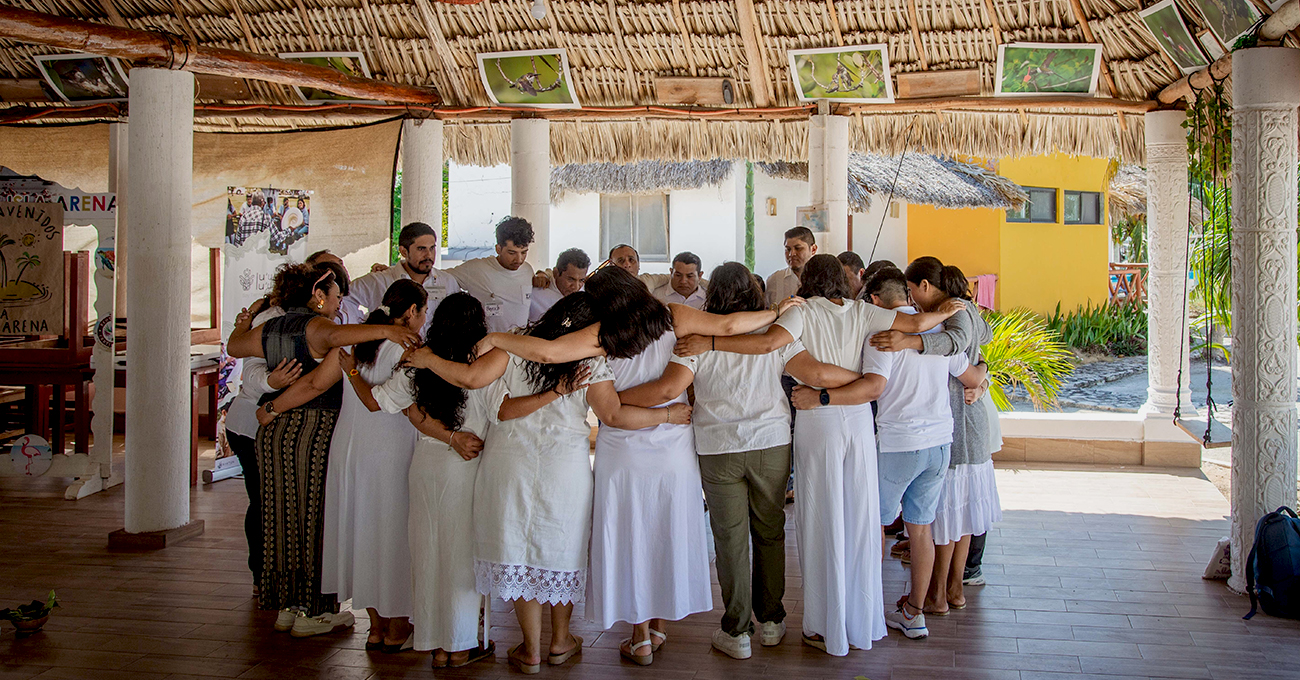
On the occasion of the Hokol Vuh 2024 gastronomic event, which brings together chefs from different countries in Yucatan, job positions were opened for young people from Mayan communities. Three of the chosen young people were part of the Baktún program, which lasts two years. The program, designed by TAE following the dia (Development of Intelligence through Art), methodology, is aimed at guiding young people towards the rediscovery of their cultural heritage, valuing it, and generating creative strategies for the safeguarding of the Mayan legacy.
Antonio Gómez Euan is twenty-six years old and was one of those chosen. After leaving the program, he explained to us his role as a young mediator and cultural promoter in Hokol Vuh. He recognizes that this work is a result of having been sensitized and trained in Baktun because the task of this work was to make it possible for third parties to have a direct experience of the most significant of the Mayan communities.
In the beginning, like many other young people, Toni tells us that he had yet to develop an awareness of his language, the importance of his culture, and the value that older adults have in their community. The latter serve as guardians of ancestral stories and knowledge. The experience of following the Baktún program and living with other young Mayans who also followed the pedagogical path guided him from a vision of the importance of socio-emotional development to social entrepreneurship.
When we asked him what was the fundamental role of the Baktún youth during this gastronomic event, Toni responded: “being able to share the customs of the communities, and make others discover the solemn origin that each product we use has for us.” "They were going to cook." For him, the community is always involved in the origin and collection or harvest of local products. The honey from Xcanchacan, or the salt and fishing from Celestún, are as important as the milpa, which brings together knowledge of seasonal cultivation, and which allows communities to subsist from working the land.
Within contemporary cuisine, there is more and more talk about local products and their origin. We look for quality, specificity, and the possibility of making ourselves known to other species. For the Mayan communities, respect for nature and ancestral practices are integrated into daily life, and when the bees do not produce as much honey, the honey remains in the honeycomb. This speaks to us of a very delicate respect for the natural world, and also of the knowledge of cycles.
When the question is, what surprised you most about foreign chefs? Toni recognizes their ability to experiment almost like children: to play, take risks and discover without limits. In this way, the cooks taught and received humanely, accompanied and guided by the young mediators.
But what specific task is behind this exchange? Sandra Arguelles and Yamily Hu, the other two young women from Baktún who participated in Hokol Vuh, explain how they developed some elements and pedagogical principles of the dia methodology in this field of work.
The elaboration of narratives stands out, led by the young people of Baktún but supported by the ancient practices of their Mayan legacy. In short, one of the significant tasks of the young Baktún during Hokol Vuh was the intense work of listening and preparing in the different communities to welcome the various chefs.
This work primarily consisted of understanding what each community wants to make known - in this case, to chefs with such diverse parallels. The children listened carefully to the adults in their communities and were able to decant the narratives that they wanted to share outside. There is nothing ordinary about this task, as it is only possible after thoroughly understanding who the community is and what its fundamental values are. It also consists of proposing narrative strategies to communicate those values to protect them and, finally, calls for the creative work of resignifying what is historically significant for them and their peers.
Sandra shares with us some lines of this well-achieved effort: “Before starting to work the cornfield, we must ask for permission... these rituals were performed by our ancestors, and to this day we continue to perform them... We belong to a group of producers who are custodians of native corns, and for us, the seeds and all the products we work with are sustenance…”
The Baktún youth are also aware that each person who has participated in the program has received training that allows them to universally develop strategies to present the identity for all of them. For this reason, they know that an essential part of the work for the adequate transmission of culinary and natural, artisanal, and ancestral knowledge requires ingenuity and a close and immediate link with their peers and communities. Mediation thus takes on a new note since the foreign cooks did not limit themselves to enjoying the region's incredible diversity of fruits and plants but also became recipients of a young narrative about the ancestral Mayan legacy.



